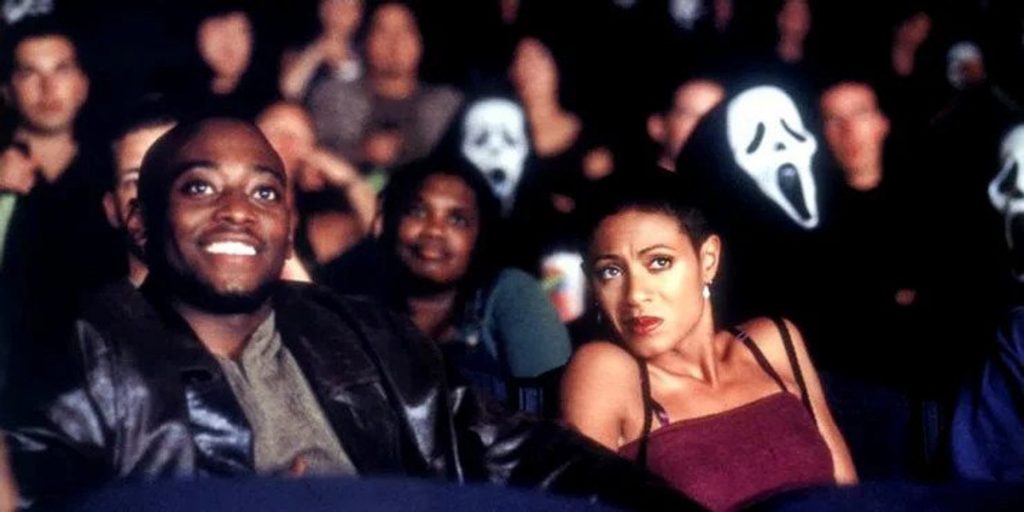Why are we attracted to horror? Let’s explore the complicated relationship we’ve developed with the genre, from idolizing villains to our response to violence.
As we enter a new year in 2022, we prepare to welcome several horror films to be excited about in the next 12 months. Scream will make its triumphant return to the big screen with a fifth film in the franchise directed by Tyler Gillet and Matt Bettinelli-Olpin, from Ready Or Not. David Gordon Green’s Halloween Ends, third and final movie in the newest iteration of the characters, will hopefully close the Michael Myers saga, at least for the time being, while Netflix attempts to bring the Texas Chainsaw Massacre series back to the mainstream with a new installment. Obviously, the horror genre is huge with audiences and at the box office, since they’re not significantly expensive films to produce and there’s a market for them, so they almost always make their money back.
From Halloween’s Michael Myers to The Texas Chainsaw Massacre’s Leatherface and, of course, Scream’s Ghostface, these are iconic villains of the genre that people have learned to love, even root for. But is it a good thing that violence has been glorified so much in the media thanks to characters such as these, to the point that we’ve developed a stomach for it? Can such films have the wrong effect on certain individuals and our society’s response to violence? Or is it pure entertainment?
This article on our complicated relationship with the horror genre contains mild spoilers for for Halloween (2018) and Scream.
HORROR AS A MEANS TO ESCAPE
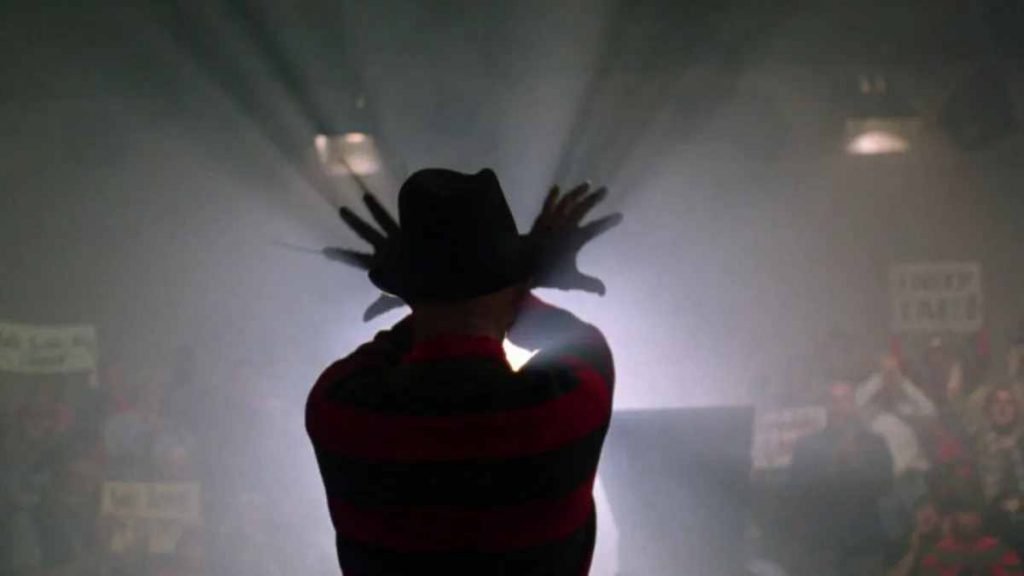
Growing up, I had a hard time understanding why anyone would enjoy the sensation of being scared by awful things happening to regular people in scary movies. I was way too busy reading comic books, playing my Star Wars video games and rewatching The Lord of the Rings and Harry Potter to care about ghosts or fictional serial killers. Yet, I was raised in a household where most of my family members and friends loved the genre, my mother being one of them. It wasn’t until I reached my teenage years that it finally hit me. Horror is a way for us to experience terrible things we ourselves have imagined happening to us, but from the safety and comfort of our home or local movie theater. We get to “escape” to a horrible reality, then it’s over after 90 minutes. I’d love to end this article here with a nice definition of what a horror film is, but we all know it doesn’t just stop at being simple fiction.
From a very young age, we’re told by our parents or guardians that the world is a big and scary place and, if we’re not careful, bad things can fall upon us. This is true, but just because it’s scary it doesn’t mean we shouldn’t live freely. It’s okay to be scared. Whatever scares you the most in life, your feelings are valid. For example, you shouldn’t feel ashamed for being scared of the dark, of heights, or more real fears like not having your entire life figured out right this moment. So, as a result, I think this is why we keep coming back to the horror genre. Watching other people deal with these issues and go through similar, sometimes more extreme versions of our own dreads through scary movies is oddly liberating, because it allows us to try to overcome those fears. Personally, I adore the genre because if it weren’t for it I feel like I wouldn’t want to try things I haven’t tried before, just like I overcame my childhood fears thanks to the world of horror. After all, you can’t be brave if you’re not scared first.
WHY DO WE LOVE HORROR VILLAINS?
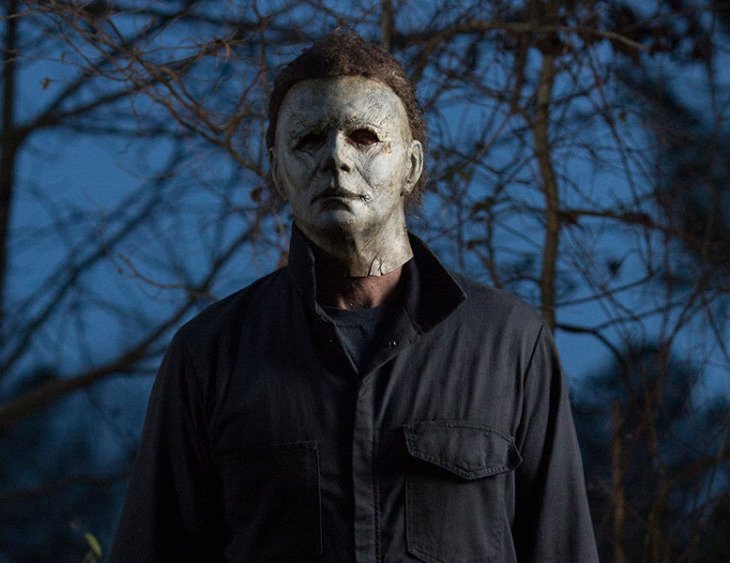
Let’s get the obvious out of the way: just because these characters have become such icons in the film industry and amongst horror fans across the world, it doesn’t mean we actually encourage people to perform such crimes. Yet, what is it about them that makes us so attracted to them? Everybody loves Batman, but his rogues’ gallery (such as the Joker, The Riddler, Harley Quinn) is just as popular as him, if not more so. I believe we like these villains so much because, deep down, we know they can be defeated by our heroes, or better I say “final girls,” as it’s typical for our female leads to be the sole survivors in horror. The world is filled with absolutely despicable individuals that don’t deserve to walk amongst us, but unfortunately it’s the world we live in. Perhaps we love watching Laurie Strode (Jamie Lee Curtis, Knives Out) go toe-to-toe with Michael Myers in Halloween because it gives us hope we could stand up against such evil in real life. Yes, I know, it’s silly that these villains seem to always come back from inevitable death, but that’s just horror sequels for you.
Also, we have to consider the factor that the older we get, the more cynical we become. Many of us horror fans have gone from hiding behind our hands during a frightening scene, taking a peek through our fingers, to screaming at the screen in frustration at the characters in scary movies. Who hasn’t yelled out loud “don’t go in there, you idiot!” or “why aren’t you running?” Horror clichés are so recognizable that they’re fun. We’ve gone from rooting for our protagonists to survive the night, to wishing Freddy Kruger or Michael Myers would just kill off the dumb, usually horny teenagers almost as a form of punishment. Is it mean spirited? Absolutely, but that’s kind of what makes the villains fun to watch. You didn’t listen to me when I yelled at you from my TV? Well, you got what you deserved! My personal favorite slasher-villain is Ghostface, as he has a playful way to go about almost as a throwback to slapstick comedy. That’s another reason why we probably love these characters too: they kind of share the same sensitivities to the villains we would laugh at in cartoons growing up, such as Wile E. Coyote. Freddy Kruger, Leatherface, Michael Myers and Ghostface are just the next evolution of that, more adult and violent characters.
OUR HUMAN RESPONSE TO VIOLENCE
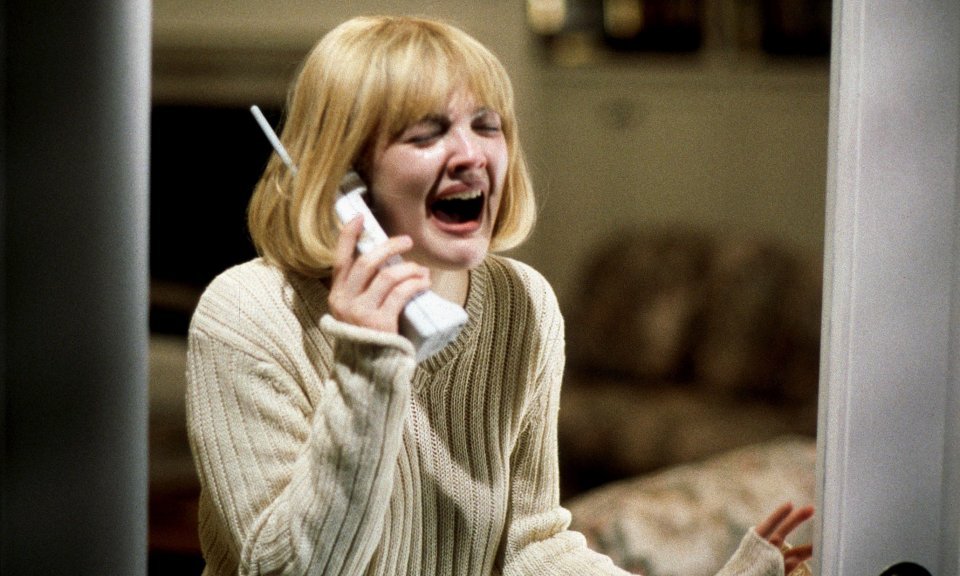
As a franchise, Wes Craven’s Scream, especially the first entry in the series, explores the idea of how troubled individuals can be “influenced” by violent movies and be pushed to commit horrible crimes. One of the film’s most iconic taglines says it best: “someone’s taken their love of scary movies one step too far.” Billy (Skeet Ulrich, Riverdale) and Stuart (Matthew Lillard, Good Girls), the ones responsible for the murders in the film, are perfect examples of desensitized people who don’t even flinch at the thought of something terrible happening to other human beings, whether it is in a movie they are a fan of, or in real life. It’s a fascinating concept, for a lack of a better word, that is very real to our times. In a world where we’ve lived through the media and society constantly accusing video games, music, film, and other forms of art, for inciting violence in our youth, this is a conversation we must have and not shy away from. Anytime an unfortunate tragedy rises due to violence in the world, most notably America and their gun control issues, people would rather point their fingers to a piece of fiction and blame stories for the actions of real life monsters.
We’ve briefly discussed how horror in a way can inspire us to want to do better, but can it have the opposite effect as well? Does it have serious implications on society, or is it just mindless entertainment? I’d say it’s a bit of both, though not through the black and white lenses a lot of people look at it. Scream uses the genre to criticize how horror clichés were being overused at the time, and how obsessive people grew with these movies. The whole concept behind Ghostface is that it’s two teenagers using scary movies as an excuse to take revenge on Sidney Prescott’s (Neve Campbell, Skyscraper) mother, after she had an affair with Billy’s dad. They don’t stop at just killing her, but they become full on serial killers. The film’s entire third act serves as a celebration of the genre, while commenting on the themes of violence in the media, and, for what it’s worth, it does it in a very clever way. In no way does Wes Craven ever say horror movies are bad for society, but, just like money, power, alcohol and more, in the hands of the wrong people anything can be considered dangerous. It’s not the content’s fault, but how we teach these individuals to engage with it.
As we discuss this topic, we also need to talk about how we view death in general. Staying with Scream, we see news reporter Gale Weathers (Courteney Cox, Friends: The Reunion) violating Sidney Prescott’s privacy by writing a book based on the murder of her mother in which she accuses Sidney of sending the wrong man to jail for the crime. Ultimately, Gale was right all along, but this showcases how Sidney is constantly taunted about her personal loss, whether it is by the media or Ghostface himself. Even in the real world, we see how people’s tragedies are exploited to no end in order to keep milking a story for television news, radio, etc. until we find the next breaking story to be wrapped up about. This has been normalized so much that we’re not even bothered by it anymore. Tell me, what’s so different about a news anchor going in great detailed to explain the latest crime from a real murderer, to seeing that being depicted through art? Not that I’m saying it’s a bad thing for the media to report on such things. It’s a way to honor and inform the masses about the state of the world, but why judge one over the other when both are showing the same side of the coin, just through different mediums and for two different purposes? One is to inform, the other to entertain.
We watch films to escape the real world for two hours and immerse ourselves in stories that can be relatable or inspiring. Personally, I don’t think art, in this case horror, necessarily seeks to tell us how we should behave, but rather gives us something to think about ourselves, almost like a mirror. Horror doesn’t hope to inspire violent individuals to act violently, but reflects an unfortunate ugly side of society we shouldn’t look away from and instead find solutions to such issues.
WHY IS HORROR IMPORTANT?
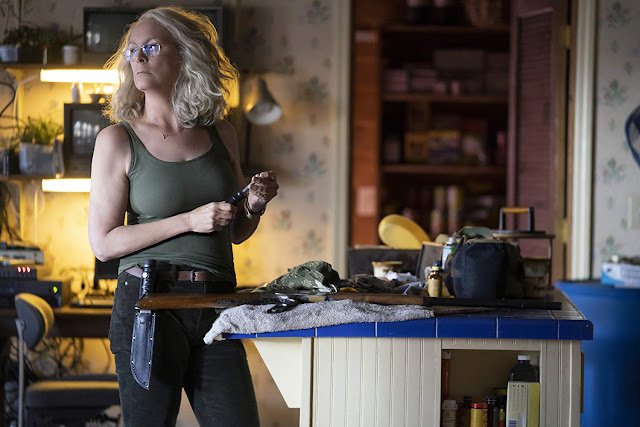
Art imitates life, and vice versa, I’m sure you’ve heard this a hundred times before. So, how are we expected to tell stories about people and the wonderful, sometimes horrendous experiences they might live through if we’re not allowed to portray the good and bad of life itself? Movies, after all, can help us open up about our own traumas and sometimes even allow us to heal and overcome our deepest fears. Let’s take 2018’s Halloween as an example. It follows the story of Michael Myers, a deranged serial killer who escapes from a mental institution, goes on a killing spree, and our beloved Laurie Strode seems like the only one who can stop him. Sounds like a generic horror-slasher, am I right? But if we engage with the film on a closer level, we’d find a story about survival, PTSD and generational trauma. Laurie finds herself trapped in the past after the traumatic events from the original John Carpenter film, and for good reason. We see how this affected her romantic life, ruined any chance to build a proper relationship with her daughter, and is threatening to damage the only bond she has left with her granddaughter Allyson (Andi Matichak, Assimilate).
At one point in the film, Allyson asks her grandmother why can’t she just get over what happened to her if it was many years ago, something we’ve all been ignorant enough to say to a loved one at least once in our lives. A question that doesn’t really have an answer, because everybody’s pain is different. Laurie’s response? She’s been preparing all these years, waiting for Michael to escape so she could kill the living representation of her fears. It’s quite literal, and not subtle at all, but it doesn’t need to be and it works within the context of the film because it’s something we can all relate to. If we were all brave enough, we would want to get rid of those things we’re most afraid of, just like our final girls.
Horror films, in a sense, are beautiful to me. What other genre can make you jump off your seat, make you nervously laugh afterwards, cry and be excited all at the same time? Most films can only dream to achieve one of these emotions, while scary movies, at least the really good ones, manage to do it all. Any time there’s a scary movie I’m interested in, I cannot wait to go to my movie theater and get to experience the film unfold in front of a crowd full of strangers; some laughing and others holding onto their chairs. It really opens your eyes to just how many people out there share the same fears as you. Isn’t that what film is all about anyway? Getting to connect with the art and other people and take something with you in return? I for one feel that 2022, if no new releases are delayed yet again, will be a great year for horror. I’m counting down the days until I am reminded why I love the genre, as I learn a thing or two about myself by the end.

